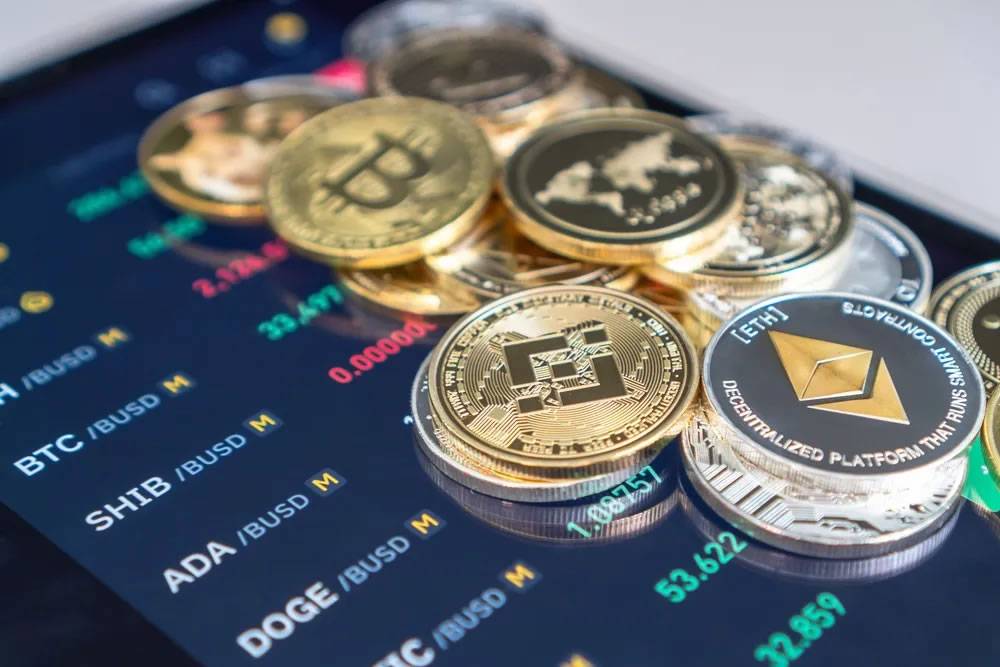A Wealthy Investor's Companion: Bitcoin and Specialised Altcoins
- 07-03-2024
- Business
- Canarian Weekly
- Photo Credit: Pexels
Cryptocurrencies have taken the world by storm, revolutionising the way we think about money and investments. Bitcoin, the pioneering cryptocurrency, has garnered immense attention, but there's a world of lesser-known digital assets, called altcoins, waiting to be explored.
This guide aims to equip you with the knowledge and insights needed to navigate the complex world of Bitcoin and niche altcoins effectively. Exploring effective strategies in-depth becomes more accessible through the resources provided by profitedge.org, a dedicated Investment Education Firm.
Bitcoin: The Pioneer of Cryptocurrencies
Origins and History of Bitcoin
Bitcoin, created by the mysterious Satoshi Nakamoto in 2008, was the first cryptocurrency. It was born as a response to the financial crisis, aiming to provide an alternative to traditional banking systems.
Bitcoin's Value Proposition
Bitcoin is often referred to as "digital gold" due to its store of value characteristics. It's decentralised, limited in supply (21 million coins), and resistant to censorship.
Factors Influencing Bitcoin's Price
Bitcoin's price is influenced by a multitude of factors, including market sentiment, adoption rate, macroeconomic events, regulatory changes, and technological developments.
Investment Strategies for Bitcoin
When investing in Bitcoin, consider your objectives and risk tolerance. Strategies may include "HODLing" (holding long-term), trading, dollar-cost averaging (DCA), and setting stop-loss orders.
Altcoins: Beyond Bitcoin
What are Altcoins?
Altcoins are cryptocurrencies other than Bitcoin. They were created to address perceived shortcomings in Bitcoin or to offer unique features and use cases.
The Diversity of Altcoins
Altcoins come in various forms, including tokens, stablecoins, privacy coins, and utility tokens. Each serves a different purpose in the cryptocurrency ecosystem.
Identifying Promising Altcoins
When considering an altcoin investment, research the project's team, technology, adoption potential, and real-world use cases. Beware of "pump-and-dump" schemes.
Risks and Rewards of Investing in Altcoins
Altcoins can offer significant returns, but they are also riskier than Bitcoin. Be prepared for higher volatility, regulatory uncertainties, and potential project failures.
Niche Altcoins: Hidden Gems or Risky Gambles
Exploring Niche Altcoins
Niche altcoins are relatively unknown cryptocurrencies with specific focuses, such as supply chain management, decentralised finance (DeFi), or non-fungible tokens (NFTs).
Examples of Niche Altcoins
Examples include Chainlink (LINK) in the DeFi sector, VeChain (VET) in supply chain management, and Decentraland (MANA) in the NFT space.
Evaluating the Potential of Niche Altcoins
Research the niche altcoin's underlying technology, partnerships, and real-world applications. Keep an eye on the project's community and development updates.
Mitigating Risks when Investing in Niche Altcoins
Diversify your portfolio, use hardware wallets for storage, and be cautious of low-cap projects with limited liquidity. Avoid investing more than you can afford to lose.
Investment Strategies and Tips
Diversification in Cryptocurrency Portfolio
Diversify your holdings across various cryptocurrencies to spread risk. A well-balanced portfolio may include a mix of Bitcoin, established altcoins, and niche altcoins.
Long-Term vs. Short-Term Investment Strategies
Consider your investment horizon. Long-term investors aim to hold assets for years, while short-term traders capitalise on price fluctuations.
Staying Informed and Keeping Up with Market Trends
Stay updated with cryptocurrency news, follow influential figures in the space, and participate in online communities. Being informed is key to making informed decisions.
Risk Management in Crypto Investments
Set stop-loss orders to limit losses, avoid FOMO (Fear of Missing Out), and have a clear exit strategy. Never invest more than you can afford to lose.
Regulatory and Security Considerations
Cryptocurrency Regulations Worldwide
Cryptocurrency regulations vary by country. Stay informed about the legal framework in your jurisdiction to ensure compliance.
Safeguarding Your Cryptocurrency Investments
Use reputable wallets, enable two-factor authentication (2FA), and consider hardware wallets for long-term storage. Beware of phishing attacks and scams.
Recognising and Avoiding Scams
Be cautious of offers that promise guaranteed returns or ask for personal information. Verify the authenticity of websites and platforms before using them.
The Role of Exchanges in Ensuring Security
Choose exchanges with robust security measures and a track record of reliability. Conduct due diligence before depositing funds.
The Future of Cryptocurrencies
Emerging Trends and Technologies in Crypto
Keep an eye on emerging trends like decentralised finance (DeFi), non-fungible tokens (NFTs), and blockchain interoperability. These areas may drive future growth.
The Role of Institutional Investors in the Market
Institutional investors are increasingly entering the cryptocurrency market, which could bring stability and legitimacy to the industry.
Cryptocurrency's Potential Impact on Traditional Finance
Explore how cryptocurrencies are challenging traditional financial systems, including remittances, cross-border payments, and central bank digital currencies (CBDCs).
Speculations on the Future of Bitcoin and Altcoins
While no one can predict the future, experts and enthusiasts continue to debate the long-term prospects of Bitcoin and various altcoins.
Conclusion
As you embark on your journey as a savvy cryptocurrency investor, remember to stay informed, exercise caution, and adapt to the ever-changing landscape. Bitcoin and altcoins offer exciting opportunities, but they also come with risks. By following sound investment principles and staying vigilant, you can make informed decisions in this dynamic and evolving market.



























































